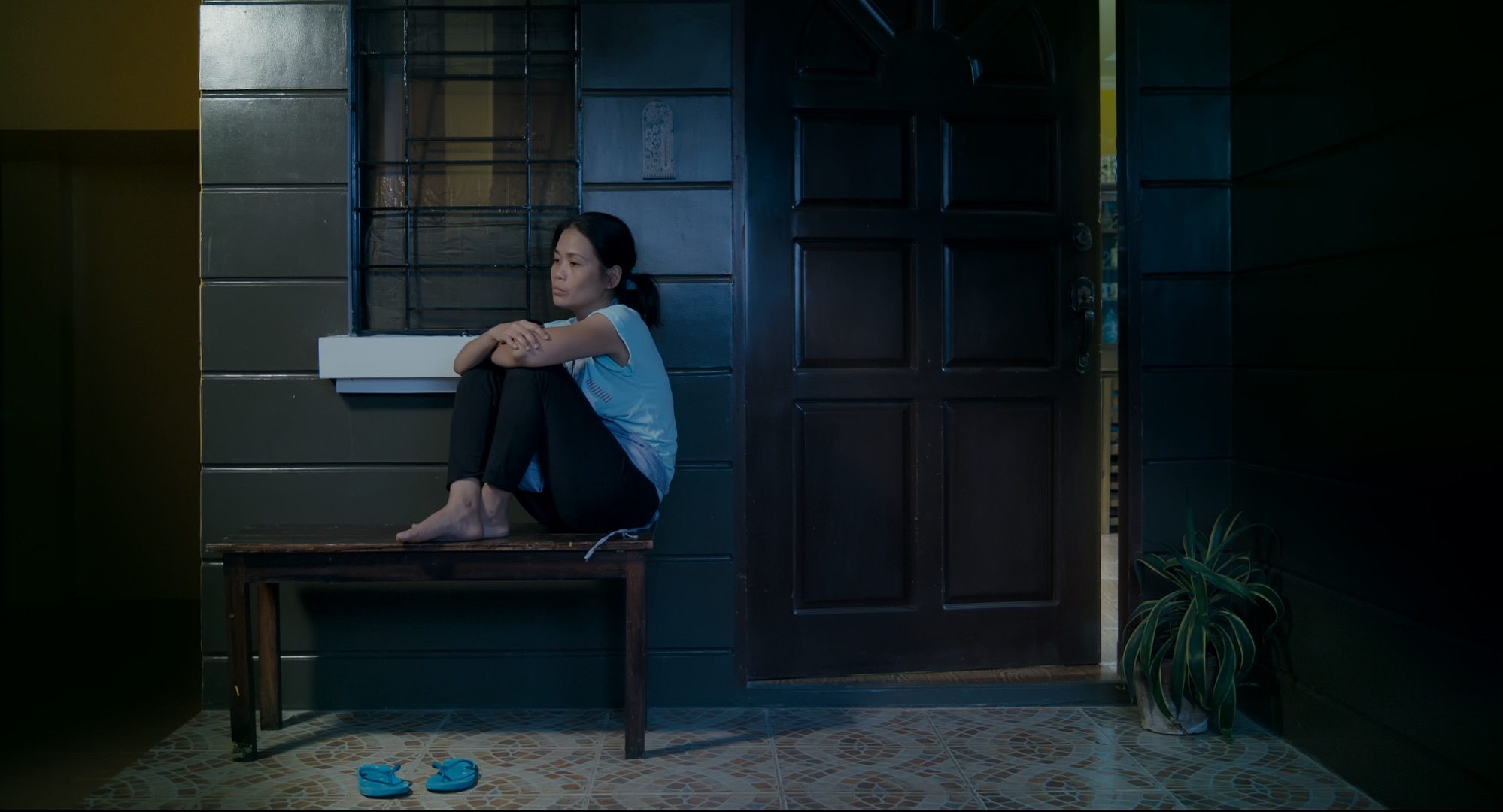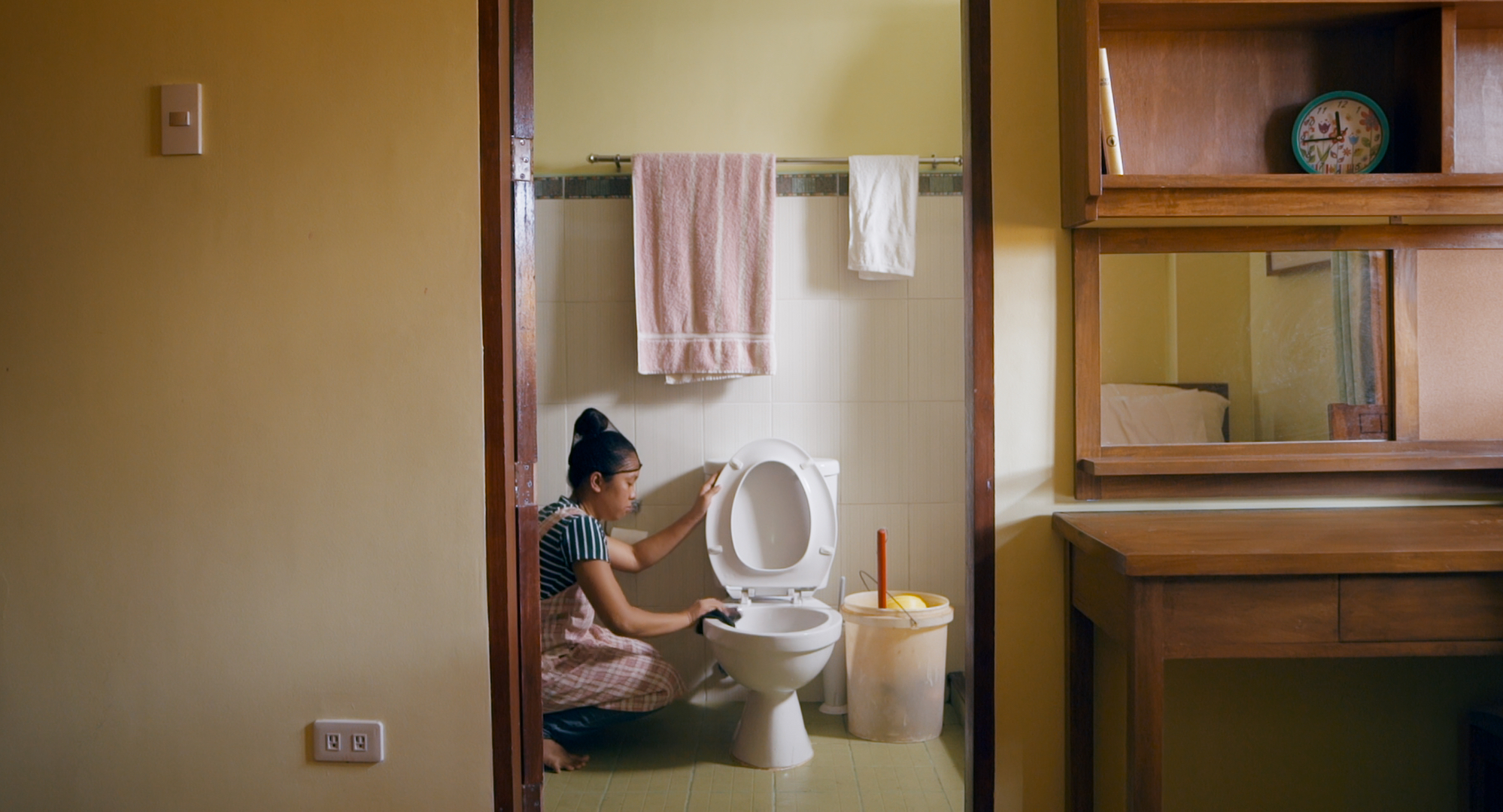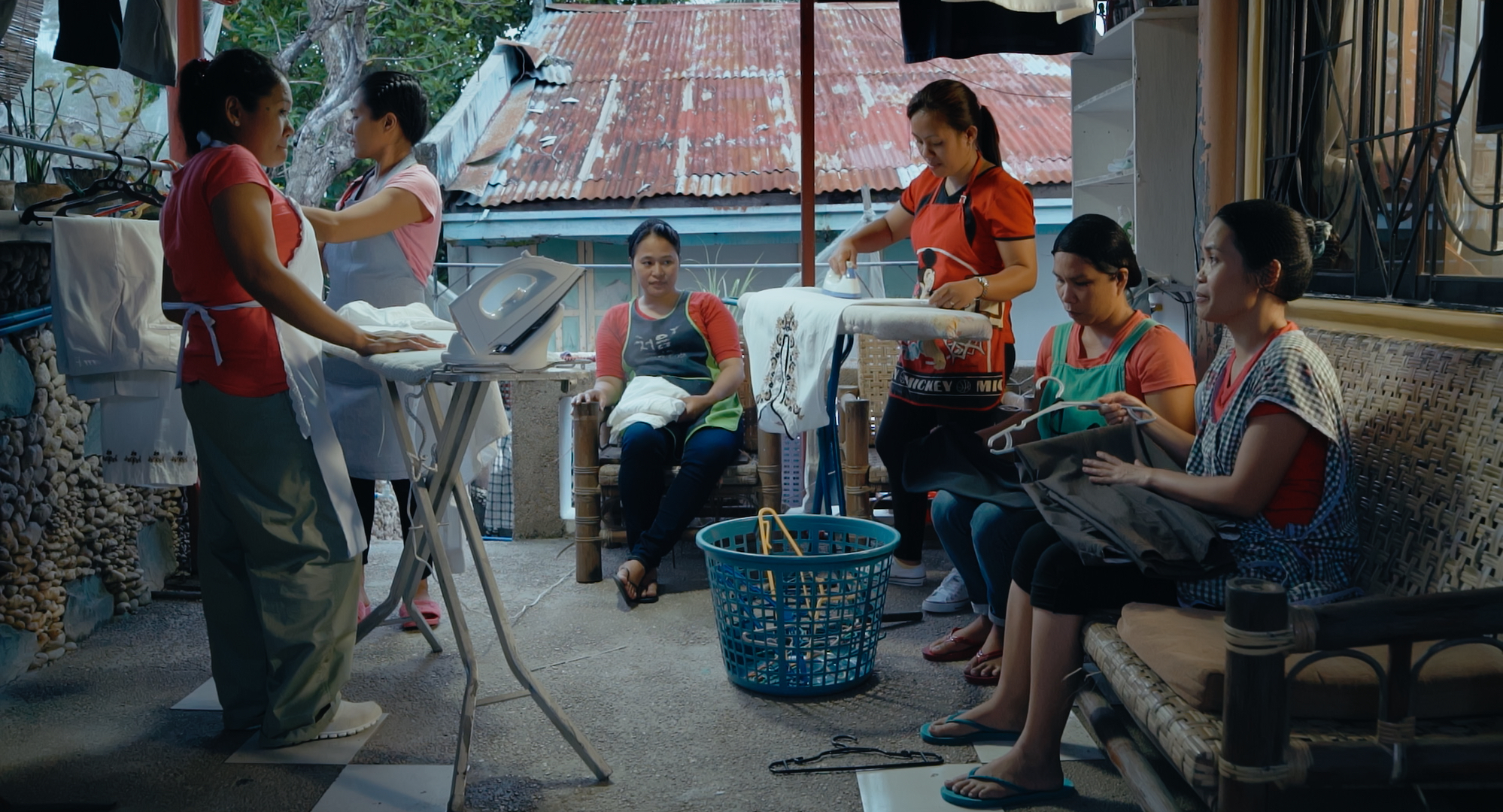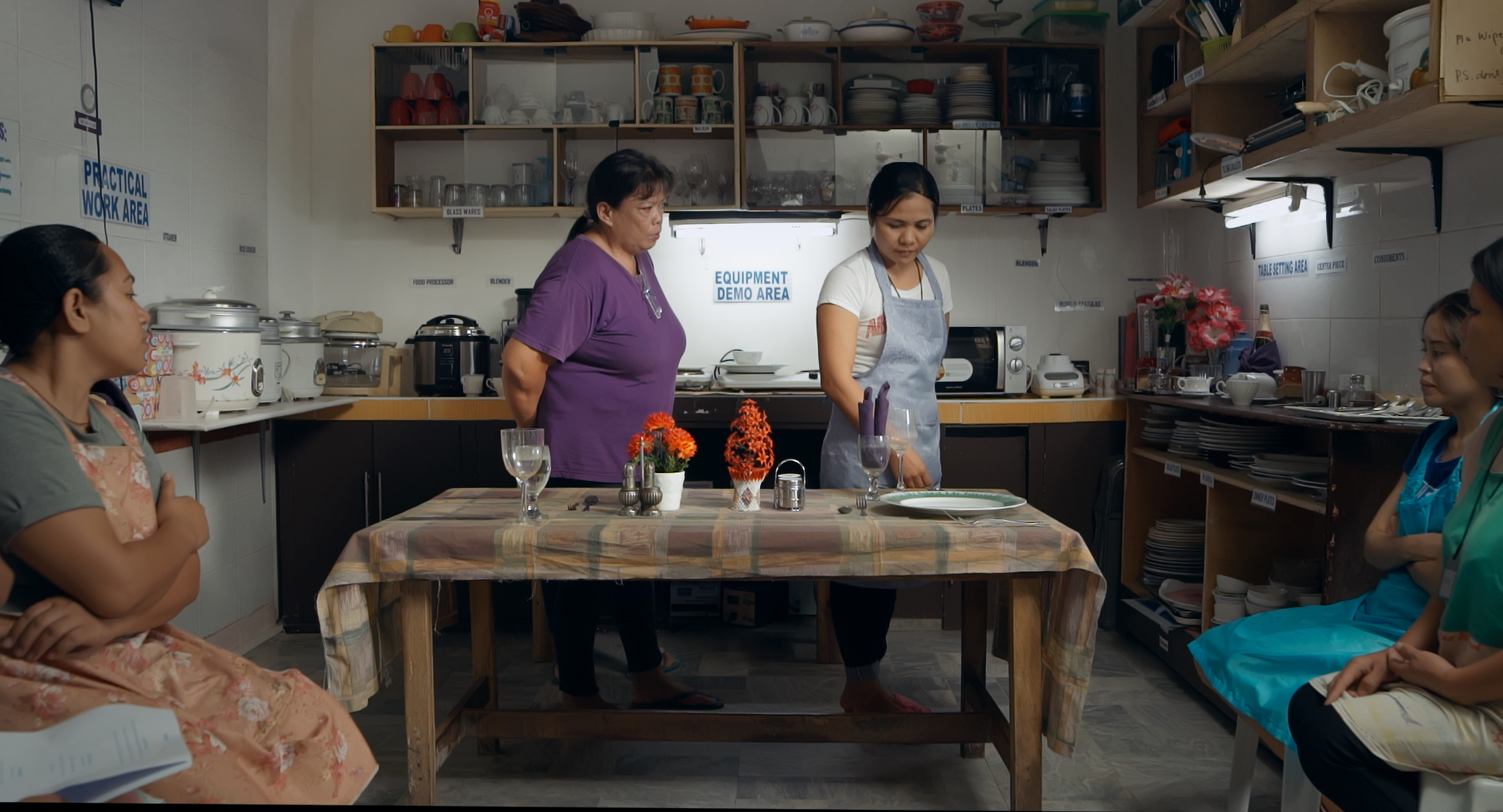SUMMARY
This is AI generated summarization, which may have errors. For context, always refer to the full article.

A new documentary offering a fly-on-the-wall look at life inside a Manila “maids academy” will make a multinational public debut this week following a successful festival run and planned cinema release that was curtailed by the coronavirus pandemic earlier in 2020.
Overseas, from French-Korean director Sung A-yoon, picked up awards and nominations at 19 festivals including Locarno, London, and Busan over the course of the 2019/20 festival season before its global march was halted by the virus, but on Tuesday October 27 (Wednesday 28, Manila), it will screen as the opening film of the 21st edition of France’s annual Documentary Film Month at Paris’s prestigious Pompidou Centre, and simultaneously in 12 other cities across Europe, the Middle East and North Africa.
The film and its slated run raises awareness not only of the acceptable, and very real, face of modern slavery, but also highlights the power of sisterhood in the face of adversity.
The film follows the lives of the students of one of many such government-accredited academies that have popped up around the nation, providing training to the 200,000+ Filipino women who say goodbye to their families each year to head abroad and care for someone else’s, often with minimal contact back home.
President Rodrigo Duterte has referred to these Overseas Filipino Workers (OFWs) as the nation’s “new heroes,” but while there’s no doubting their bravery as they step into the unknown – or the significant impact their remissions have on the Philippine economy – the film would suggest that “heroic” is a very optimistic word for the conditions they face, both during training and on arrival at their postings in the Middle East, Hong Kong, Singapore, and beyond.

Some 216 hours of daily training in how to clean a toilet and submissively obey barked orders without question may sound depressing enough, but it’s in the academy’s sessions dedicated to coping with the emotional trauma of life as a domestic OFW that Yoon really hits the mark.
Role play sessions are organized to help prepare the maids for all manner of apparent impending misery. These range from how to beg uncaring ma’ams for long-overdue holidays to visit family back home, or survive being expected to work 24/7, to how to cope with the very real threat of emotional, physical, and even sexual abuse at the hands of employers – it’s “the luck of the draw” what kind of employer you’ll get, we’re told.
Yoon doesn’t hold back when it comes to highlighting the less appealing aspects of life as a domestic OFW, though she insists she didn’t set out to make a judgmental film – a claim backed up by her decision to add no commentary to the events unfolding on screen, rather letting her camera gaze silently on our protaganists’ day-to-day trials and tribulations.
“Of course, you could make a very accusing film, a biased thing looking at a system and explaining who is responsible,” the director tells Rappler by phone from Belgium.

“But when I went there, I decided that what I really wanted to do is to put the audience in the perspective of these women, because I thought that this problem that they have is that domestic workers are not truly respected. They’re very much invisible in our society and they are not treated as human beings. So, to me the main goal was that – to humanize, to give them back their dignity, and show that they are not only numbers, statistics entered. I wanted to say something else.”
In fact, as Yoon spent longer shooting inside the academy, she says she began to realize that even some of her own initial negative judgements may have been misplaced.
“I was struck by the fact that when I came there, I was thinking that you have to read it very much like a black and white vision,” she explains. “I was thinking that the trainers are the bad guys, and the trainees are the victims, but sometimes the trainers themselves are former domestics abroad. They themselves have experienced horrible things abroad, but still they’re teaching others. It’s very much more complicated.”
Equally complicated is the fact that many of the academy’s students are in training for a second or third stint overseas, despite the horror stories some of them have brought home with them. After all, as the students are reminded in class “what you earn abroad, you cannot earn here.”
Yoon says this growing complexity led her to think beyond the individual circumstances of her subjects, and look at the wider picture of what causes these injustices in the first place: “What I wanted to question was more the system, how it is systemic, and how our capitalist world brings these things to happening,” she says.
“Like, why does some woman in that part of the world have to leave her kids when they’re four, or even younger, to go abroad for many years, without even knowing when they’ll ever see them again, just make a living? That was the point.”

Despite the film’s overarching bleakness, there is a positive to be found in the sense of camaraderie and sisterhood that the school’s students form to help them cope with the tough conditions, in part thanks to the fundamental lesson of one grizzled tutor: “Never cry in front of your employers. It shows weakness. Filipinos are not weak.”
Sadly, it will take more than a sisterly bond in adversity and an ability to hold back tears to fully address a huge global injustice. It will probably take more than an award-winning film too, although Yoon does say she has already chalked up at least one minor victory in her mission to see the issue addressed and bring a little more humanity to the lives of OFW domestics.
Earlier in the year, the director reveals, she attended a screening of her film in Hong Kong, where three of the women featured are now working, and the three attended the event.
“One told me that her employer, at first was hitting her each time she was not happy with something – she showed me she had this scar on her cheek. This lasted three months, then this woman happened to watch the movie, because it has been broadcast in in Hong Kong. I was amazed because she told me that the employer said she was impressed because she didn’t even know they were trained. And then she said ‘oh wow, but the movie, it’s so moving, when she leaves the kids and everything.’”
The employer had apparently had a revelation, and it didn’t end there, as Yoon explains: “Suddenly she turned to her maid and said ‘but do you ever feel homesickness?’ Like, she was discovering, you know? And she stopped hitting her then. It made me very happy, because you wonder when you make a small film, can it really do anything useful in society? And it’s only a very small thing, but it would make her condition of working better. I think as soon as the employer is able to understand the situation of the employee, she might be more capable of feeling empathy, and not abuse them. It’s small victory, but a victory at least.” – Rappler.com
Overseas will screen on beginning Tuesday October 27 at the following locations, with a live online Q+A between Sung A-Yoon following the screening for audiences at selected locations including Dubai and Paris.
Check individual venue listings for local timings and full details:
- Paris: Pompidou Center
- Nîmes: Square Art Library
- Tourcoing: with Exquisite Hour! at Fresnoy
- Dubai, United Arab Emirates: Alliance Francais
- Algiers, Algeria: French Institute
- Reims: Jean Falala Media Library
- Marrakech, Morocco: French Institute, virtual room
- Algiers, Algeria: French Institute
- Reims: Jean Falala Media Library
- Marrakech, Morocco: French Institute, virtual room
- Tunis, Tunisia: French Institute, virtual room
- Casablanca, Morocco: French Institute, virtual room
- London, England: French Institute
- Oran, Algeria: French Institute
- Barcelona, Spain: French Institute
- Madrid, Spain: French Institute
Follow the film on Facebook for details of future screenings, cinema release and TV broadcast details.
Add a comment
How does this make you feel?





There are no comments yet. Add your comment to start the conversation.